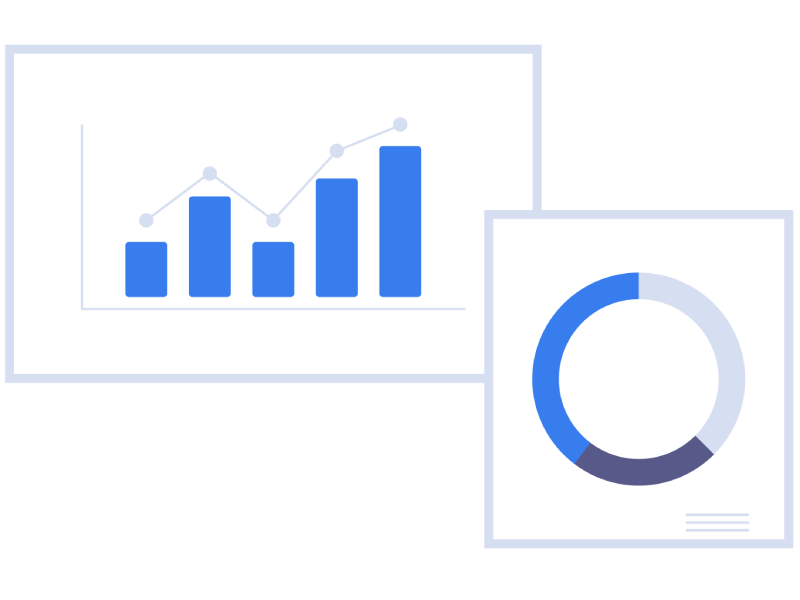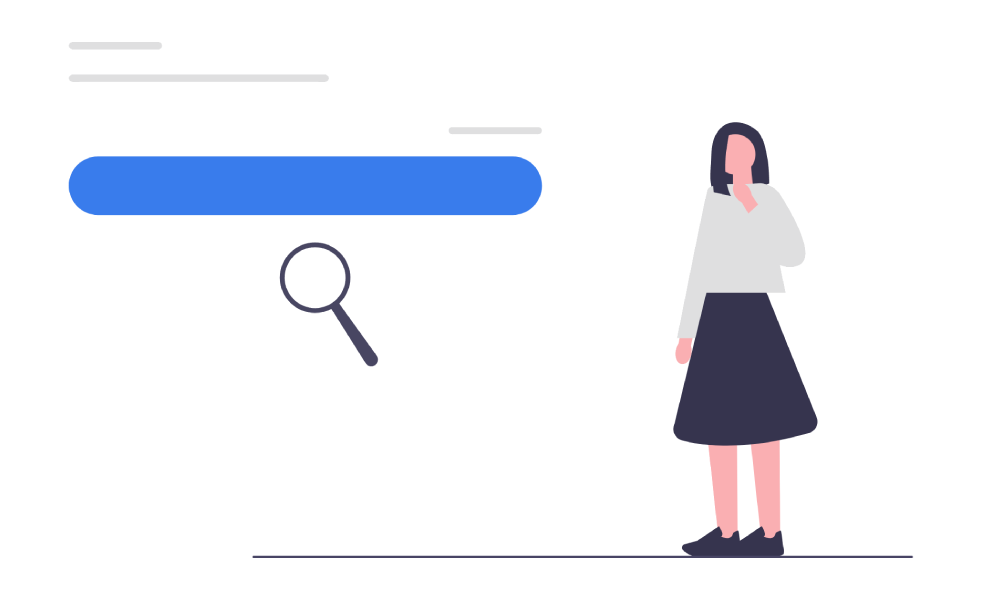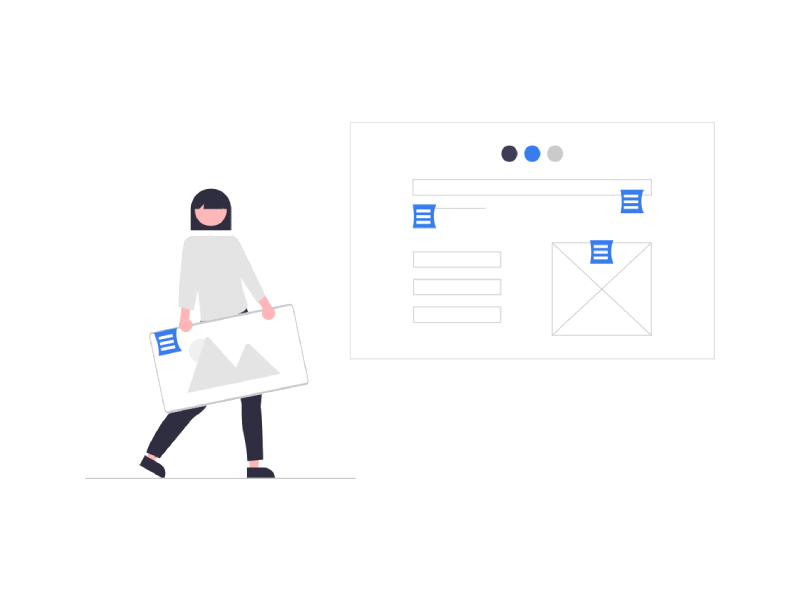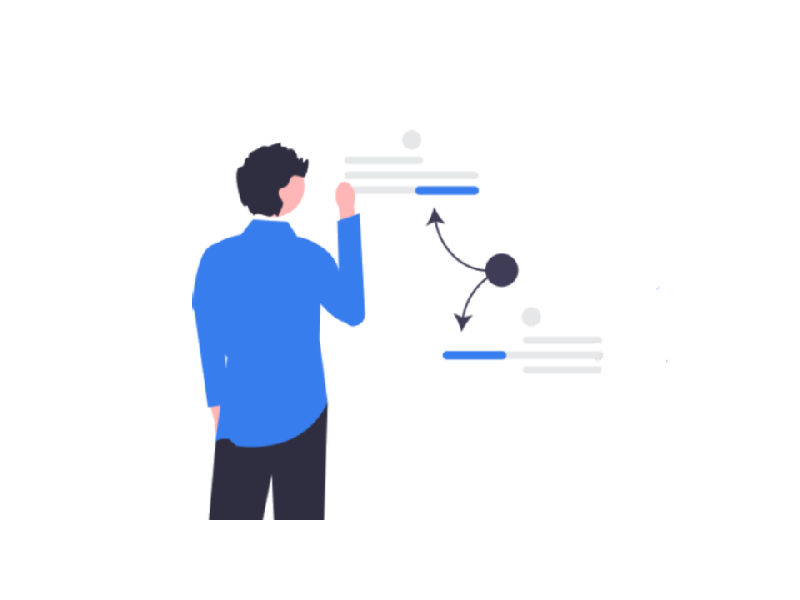Organic Search, the steady, silent warrior, relies on its cunning and patience, crafting strategies over time. It’s the grass-roots movement of the SEO world, building credibility from the ground up. On the other hand, Paid Search is like a flashy superhero, zooming in with a cape of dollars, ready to claim immediate visibility. It’s quick, it’s showy, and boy, does it pack a punch!
But the difference between SEO and PPC (Pay-Per-Click) lies beyond just brute force vs. deep pockets. It’s a game of wit, strategy, and long-term vision. Each approach has its strengths and weaknesses, its triumphs and pitfalls.
What are Organic Search Results?
What is Organic Search? Type any question into Google, like “How do I make a cake?” The list of websites that pop up without the “Sponsored” tag? Those are your organic search results. They’re like the hidden gems of the internet, unearthed by Google’s algorithms, not by someone’s wallet.
Organic results are the answers that search engines, like Google or Bing, think are the best fit for your query. But they’re not just plucked from thin air. They’re carefully selected based on relevance, content quality, and other factors that make them the cream of the crop.
Where do these results show up? Mostly, they lounge on the first page of your search results, stretching down below any ads. But getting there is like climbing a mountain. It takes a bit of effort, skill, and a dash of SEO magic.
Here you can see how they appear on Google’s SERPs:

It’s a tough game, with search engines constantly updating their algorithms. But why should you care? Well, because organic search results are the trusted advisors of the internet. They don’t flash their cash for attention. Instead, they earn their spot through quality content, robust SEO strategies, and genuinely answering the user’s query.
What are Paid Search Results?
Just because they’re paid for doesn’t mean they’re irrelevant.
You’re at a concert, and there’s a VIP section. That’s where Paid Search Results hang out. They’re like the high rollers of the search engine world, sitting in those prime spots right at the top of your search page, often with a little “Sponsored” label tagging along.
Here’s an example of a paid search result:

Why are they there? Simple. Someone’s paid for that luxury. Companies bid on keywords in a high-stakes auction run by search engines like Google. Think of paid SEO as a digital bidding war where the highest bidder gets to flaunt their website in these coveted spots. It’s a bit like advertising on a billboard but in the digital space.
But it’s not just about who’s got the deepest pockets. These ads also need to be relevant. Search engines don’t want to lose trust by showing random, low-quality ads. So, they use a combo of bid amount and ad quality to decide who gets the top spot.
Where exactly do these paid results show up? Right at the top of your search results, before the organic ones. Sometimes, they sneak in at the bottom of the page, too. They’re the first thing you see when you search, grabbing your attention with their bold ad tag and often more visually appealing format.
But remember, just because they’re paid for doesn’t mean they’re irrelevant. These ads are targeted. They’re crafted to match what you’re searching for. So, if you type “best running shoes,” those ads are from businesses betting their sneakers are what you’re looking for.
Organic Search vs Paid Search: What’s the Difference?
SEO versus PPC? They’re like two sides of the same coin, yet worlds apart. Both have their charm, and both have their tactics.
It’s like choosing between a home-cooked meal and a fast-food fix – each serves a purpose and has its flavor. So, let’s see the advantages and disadvantages of SEO and PPC.
Organic Search Pros
- Costs nothing initially: You don’t need to open your wallet right away. Instead, you invest time, creativity, and smarts. It’s about using clever SEO tactics, crafting content that resonates, and building an authentic digital presence. This approach is more about sweat equity than dollar bills. PPC vs SEO? SEO is a slow burn, for sure, but one that doesn’t require a direct financial investment to start.
- Offers a substantial ROI: How is ranking different when comparing PPC vs SEO? Here, you’re not paying for clicks or immediate visibility. Instead, you’re building a foundation that continues to deliver value. As your site climbs the search rankings, the traffic and the potential for conversions increase. Unlike paid ads, which stop the moment you stop paying, organic traffic keeps flowing.
- Offers cumulative benefits: Organic Search is like a snowball rolling down a hill – it grows over time. Each piece of content you create, every SEO optimization you implement, adds to this snowball. Over time, these efforts accumulate, building a stronger web presence. Your website becomes more visible, authoritative, and trusted by search engines. This cumulative effect means that your efforts today can pay dividends for years.
- Enhances credibility and brand awareness: When your site ranks high organically, it’s a nod from search engines that says, “Hey, this content is legit.” It’s not just about being seen but about being recognized as a credible source. This recognition boosts your brand’s reputation. Users trust organic results way more than paid ads. They see these high-ranking organic sites as industry leaders, knowledgeable and trustworthy.
- Draws relevant users: One of the beauties of organic Search is its ability to attract users who are actually interested in what you have to offer. When you optimize your content for specific keywords and topics, you’re signaling to search engines what you’re all about. It helps them direct users with those interests right to your digital doorstep. The result is more relevant traffic that often translates to higher engagement and conversion rates.
- Search traffic is more stable: Unlike the fluctuating nature of paid search campaigns, where traffic can spike and dip based on your advertising budget, organic traffic is more consistent. Once you’ve established a solid SEO foundation and rank well for your chosen keywords, this traffic tends to be more stable and reliable. This stability is key for long-term planning and building a sustainable online presence.
Organic Search Cons
- Less Initial Traffic: The organic search approach is like planting a garden. You can’t just sow the seeds and expect a lush landscape overnight – it takes time. When you start optimizing for organic Search, don’t expect a flood of traffic immediately. It’s a slow burn, as SEO is a game of patience and persistence. You’re playing the long game, building up your site’s relevance and authority.
- Difficult to Achieve: Let’s face it, nailing organic Search is like trying to solve a Rubik’s Cube blindfolded. You need a blend of skills – a bit of a coder, a touch of a writer, a dash of a marketer. Understanding the nuances of SEO requires a solid grasp of how search engines work, what your audience wants, and how to tie it all together. For many, it’s a steep learning curve or a hire-a-pro situation.
- Volatility: One day, your SEO tactics are on point; the next, a new algorithm update sends you tumbling. It’s volatile and unpredictable. And because of this, your website needs constant TLC. Regular updates, tweaks to your content, staying abreast of SEO trends – it’s all part of the game. It’s not a set-it-and-forget-it deal – it’s an ongoing commitment.
Paid Search Pros
- Provides instant visibility (quick results): Step into the world of Paid Search, and it’s like hitting the fast-forward button. Want instant visibility? You got it. The moment you pump money into paid ads, your visibility on search engines skyrockets. We’re talking zero to sixty in seconds. SEO vs PPC? PPC is perfect for those who need quick results – like launching a new product or a time-sensitive campaign.
- PPC ads appear above organic rankings: If the search engine results page is a stage, Paid Search is the headliner, the main act, sitting right at the top. PPC ads dominate this prime real estate, above all organic results. When people search for keywords you’ve bid on, your ad is one of the first things they see. This top billing is a game-changer. It increases the chances of clicks, making it a potent tool for driving traffic.
- Allows you to pinpoint your target audience: One of the coolest things about Paid Search is its laser-focused targeting. You can select who sees your ads depending on demographics, interests, locations, and even specific behaviors. Want to target 30-something yoga enthusiasts in San Francisco? Easy. How about tech-savvy seniors? No problem. This approach makes every dollar count.
- Simplifies campaign management: Thanks to intuitive platforms like Google Ads, you have a host of tools and analytics, making it easier to launch, monitor, and tweak your ads. Want to adjust your budget? A few clicks, and you’re done. Need to change your target audience or keywords? No sweat. Paid Search provides a more direct and manageable approach to online advertising.
- Delivers an impressive ROI: Because of its targeted nature, you’re reaching people who are more likely to convert, which leads to a higher return on your ad spend. Plus, with the ability to track every click and conversion, you get clear insights into what’s working and what’s not. Sure, you’re putting money in, but when done right, the returns – in terms of traffic, leads, and sales – are substantial.
- Offers keyword data for SEO: One of the lesser-known but super valuable aspects of Paid Search is the wealth of keyword data it provides. You get real-time insights into which keywords are driving traffic and conversions. This intel is gold. You can use it to refine your organic content strategy, discovering what your audience is really searching for. It’s a symbiotic relationship – your paid efforts inform your organic strategy.
Paid Search Cons
- Costs money upfront: Paid Search, while effective, is like a high-maintenance relationship – it needs your money to thrive. PPC vs Organic Search? Unlike Organic Search, where your investment is time and creativity, Paid Search demands cold, hard cash right from the get-go. We’re talking bidding on keywords, setting a budget for your campaigns, and basically paying to play. Sure, it’s a direct line to visibility, but your wallet feels the pinch.
- Demands constant management: Paid Search isn’t a set-it-and-forget-it deal. Keeping an eye on your budget, tweaking your bids, refining your target audience – it’s a full-time gig. This isn’t about just casually checking in – it’s about actively managing your ads to ensure they’re performing and delivering ROI. Neglect your campaigns, and you might as well be throwing money into a black hole.
- Requires experience: There’s a steep learning curve here, folks. Understanding the ins and outs of PPC platforms, knowing how to craft compelling ads, and getting the hang of keyword bidding strategies – it’s no small feat. Missteps mean wasted money and poor results. Experience, or the lack of it, plays a big role in the success of your Paid Search campaigns.
- Provides short-term results: Unfortunately, its results are often immediate but not enduring. Your ads vanish when you stop paying, and so does the traffic they bring. It’s great for a quick boost, a short-term campaign, or a product launch, but it lacks the staying power of Organic Search. For sustained, long-term results, relying solely on Paid Search isn’t the best strategy.
Should Businesses Use Organic or Paid Search or Both?
Paid Search vs Organic Search? As we already mentioned, it’s kinda like choosing between a home-cooked meal and a fast-food fix. Each has its time and place, and sometimes, a combo meal is just what the doctor ordered.
What is Organic Search results? It’s your slow-cooked stew. It takes time, patience, and a whole lot of TLC. You’re playing the long game, nurturing your digital garden until it blooms with top-ranking search results. This approach builds trust and credibility – the whole shebang. But remember, it’s a marathon, not a sprint.
Then you’ve got Paid Search, your microwave dinner. Quick, convenient, and oh-so-tempting when you need immediate results. Got a product launch? Running a promo? Paid Search gets you in front of eyeballs, pronto. It’s the splashy billboard to your organic backroad signs. But here’s the difference between PPC and SEO – stop paying, and poof! It vanishes.
So, what’s the secret sauce?
Mixing Organic and Paid Search up.
Use Organic Search for that solid, enduring presence. It’s your base, your foundation. Then, when you need that extra zing, throw in some Paid Search. This blend is about balance. You’re not just relying on quick fixes or slow burns – you’re using both PPC and SEO to create a well-rounded strategy.
How to Combine Organic and Paid Search
Content Marketing is your bread and butter. You create killer content that’s SEO-optimized (hello, Organic Search!). How PPC and SEO work together? Use snippets of this content in your Paid Search ads. Think of it as a teaser trailer for the main movie. It gets people clicking, and once they land on your website, they’re hooked by the full, rich content. Boom! You’ve just used Paid Search to amplify your organic content.
Social Media Marketing is not just for memes and cat videos. Use your social channels to boost your best-performing organic content. Got a blog post that’s doing well organically? Run a paid ad for it on social platforms. You’re essentially giving your organic efforts a megaphone, reaching a wider, yet targeted, audience.
As for Email Marketing, gather insights from your Paid Search campaigns – like which keywords are bringing in the most traffic. Use this intel to craft personalized email content that resonates with your audience’s search interests. The result is a one-two punch – your emails get more relevant, and your Paid Search gets more targeted.
And let’s not forget Retargeting. Someone visits your site but doesn’t convert? No sweat. Retargeting ads are like those friendly reminders – “Hey, remember that cool thing you checked out? It’s still here!” It’s a gentle nudge, a whisper in the digital wind, bringing them back.
Wrap-up
What is organic search engine optimization? It’s your authenticity, your digital footprint, that grows and evolves over time. Keep nurturing it with quality content and smart SEO.
Paid Search is your rocket booster. Use it to launch new campaigns, target specific audiences quickly, and give your brand an immediate spotlight. It’s your strategic play in the chess game of digital marketing.
But don’t get boxed into one strategy. Make Organic and Paid Search work together. Adapt, experiment, and find the right balance for your unique brand and audience.







